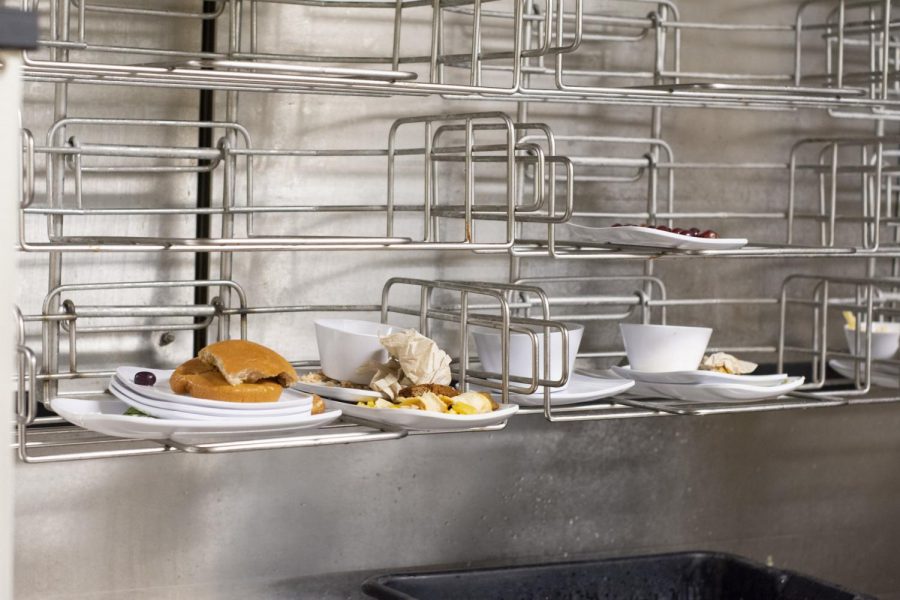Dining recycling and waste changes
Discarded meals sit on the disposal rack in the Jack Kane Dining Center at Winona State University. As food waste becomes a more prevalent national conversation, Winona State has begun tracking the food wast out of Jack Kane. In the last weeks of October there was roughly 3,000 gallons of wasted food from daily meals.
November 6, 2019
Recycling and waste from Winona State University’s Jack Kane Dining Center and Zane’s is a process that is mostly unseen by students and faculty.
Paula Scheeval, director of Residence Life, commented on Dining Service’s recycling program and waste disposal.
“The Dining Services is a contracted service that adheres to all of the university requirements for waste and recycling. Winona County recycles all acceptable items for Winona State University.” Scheeval said.
There is a sign near the dish intake area in Jack Kane that details the latest recycling and waste statistics for the campus dining locations. This is a reminder that every student can make a difference, no matter how small, by making sure to make the upmost use of the different recycling and waste receptables around campus.
John Sinniger, director of Chartwells, discussed the inner workings of waste and recycling after it leaves the dining areas.
“Unfortunately, the pig farm that used to accept our food waste did not renew the contract. This means that the food waste now goes directly into the dumpsters. Winona is a smaller town and this means that less resources are available,” Sinniger said. “We are doing what we can for the moment, but we are hoping to do the right thing and need someone that is willing to help.”
Winona State is a vital contributor of aluminum, plastics, paper, cardboard and food and beverage cartons as part of the county wide recycling initiative. The university also has an agreement with Xcel Energy to purchase 4,800,000 KWh through the Renewable Connect program to utilize clean energy for about one fourth of the campus’s energy needs.
Other companies that Winona State partners with is Waste Management and Harter’s Quick Clean Up, who help process the recyclables and transport them out of state.
Waste Management is a major processor of such recyclables, utilizing more than 240 landfills and just under 100 recycling centers nationwide to do its part. They even have about 130 specialized landfills to turn food and wood into methane gas and then clean energy.
Harter’s Quick Clean Up breaks down aluminums, plastics and cardboard and turns them into giant bales of recycled materials destined for far off destinations such as the Georgia Pacific Harmon Recycling Facility.
Whether the recycling is occurring near or far, Waste Management, Harter’s Quick Clean Up and other companies like it have an important collaboration with Winona State for increasing sustainability and reducing waste everywhere possible.
The city of Winona and Winona State have a lot of beauty and history to share between them.
Environmentally friendly practices, whether its recycling that water bottle from lunch or composting your food scraps impact the entire city.
Keeping Winona State and the island city surrounding it clean and green will ensure that it remains a great choice for future generations of college students to come to campus.













































